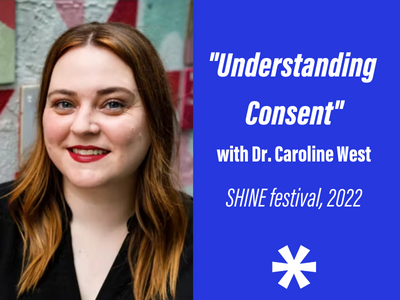

We currently offer the Active* Consent Schools Workshop to Transition Year students, Fifth and Sixth Years.
The Active* Consent Schools Workshop shares knowledge and skills that enable young people to practice active consent communication. We work closely with your teachers and parents to deliver this workshop at your school.
If you would like to bring our workshops to your school, speak to your teacher and ask them to contact us at activeconsent@universityofgalway.ie


The age of consent in the Republic of Ireland is 17. This means that the law says it is illegal to engage in sexual activity with anyone under the age of 17. However, Irish law also says that if there is an age difference of two years or less (for example a 15-year-old and a 17-year-old) that the younger person can consent to this activity. But in this situation, consent must also have been given freely and voluntarily, no one can have felt pressured or intimidated, and neither person can be in a position of authority (teacher, coach, manager, boss). The law is not there to criminalise young people but to protect them from abuse and/or exploitation. In the end, it is up to the court to decide if it was consenting even if these four conditions were met.
Do other people my age think asking for consent is important?Our research shows that 86% of secondary school students agree or strongly agree that you always need to get consent before the start of sexual activity (touching someone’s breast or genitals, oral sex or sexual intercourse). This means that although it can feel awkward to talk about consent directly with your partners, remember that other young people like you believe consent is important.
Where can I get help if myself or a friend have had a negative sexual experience?If you have had a negative sexual experience, click here to learn more about your options for reporting and getting support. Remember, it is not your fault that this happened and there are many options to help you through this difficult situation. If you are supporting your friend following a negative sexual experience, it is very important to listen to them, tell them you believe them, and ask how you can help. Help can mean just listening to them but be careful not to rush them into sharing anything they don’t want to. You could also connect your friend with a trusted adult or share this list of services with them. It is not your responsibility to resolve this for them, but you can direct them to adults and/or experts who can support them to explore next steps. If you are struggling to cope after learning about a friend’s negative sexual experience, you can also reach out for support for yourself. Click here for a full list of contacts and supports for both you and your friend.
What can I do if I am worried about my friend’s safety?If you are worried about your friend’s safety, there are several things you can do, depending on the situation. If they are in immediate danger, call 999 or 112 if you are in Ireland. If you are witnessing a friend in an uncomfortable situation where they are at risk of being sexually harassed and/or assaulted, you can follow the five D’s of Bystander Intervention, a model first developed by Bibb Latane and John Darley in the United States in the 1970s which has been adapted by many anti-violence groups worldwide.
| TECHNIQUE | WHAT TO DO | ACTIONS |
| Distract | You can distract either the harasser or the person they are targeting to de-escalate the situation. This is a subtle and easy way to intervene in a situation without directly addressing what is happening. | Spill a drink “accidentally” to break up the interaction. Strike up a conversation with your friend who is being harassed. Tell your friend who is being harassed that you need them to go somewhere with you, to remove them from the situation (the toilet, go home, to another place, etc). If you do not know the person that is the target, pretend you know them and talk to them to intervene. |
| Delegate | Ask a friend or another person to help. If you can, ask someone with some level of authority (a teacher, bus driver, bouncer, etc.) | Inform a nearby person that there is an issue going on and that you need help. Call a friend for help. |
| Direct | If you feel safe to do so, you can confront the aggressor directly. | Say “This isn’t ok, leave them alone.” Stand between the aggressor and their target. |
| Document | If you don’t feel safe intervening in the moment, you could record what happened on your phone or take a photo. Afterwards, you and your friend/the victim can decide what to do. | Use your phone to record a video or photo of what is happening. You can do this discreetly if you feel more comfortable. |
| Delay | If you can’t intervene in the moment, check in with the person being harassed afterwards to see if you can help them in any way. | Say “I saw what happened, are you ok?” Say “Is there anything I can do?” Say “Is there someone I can call for you?” |
Find out how to report an incident or get support.